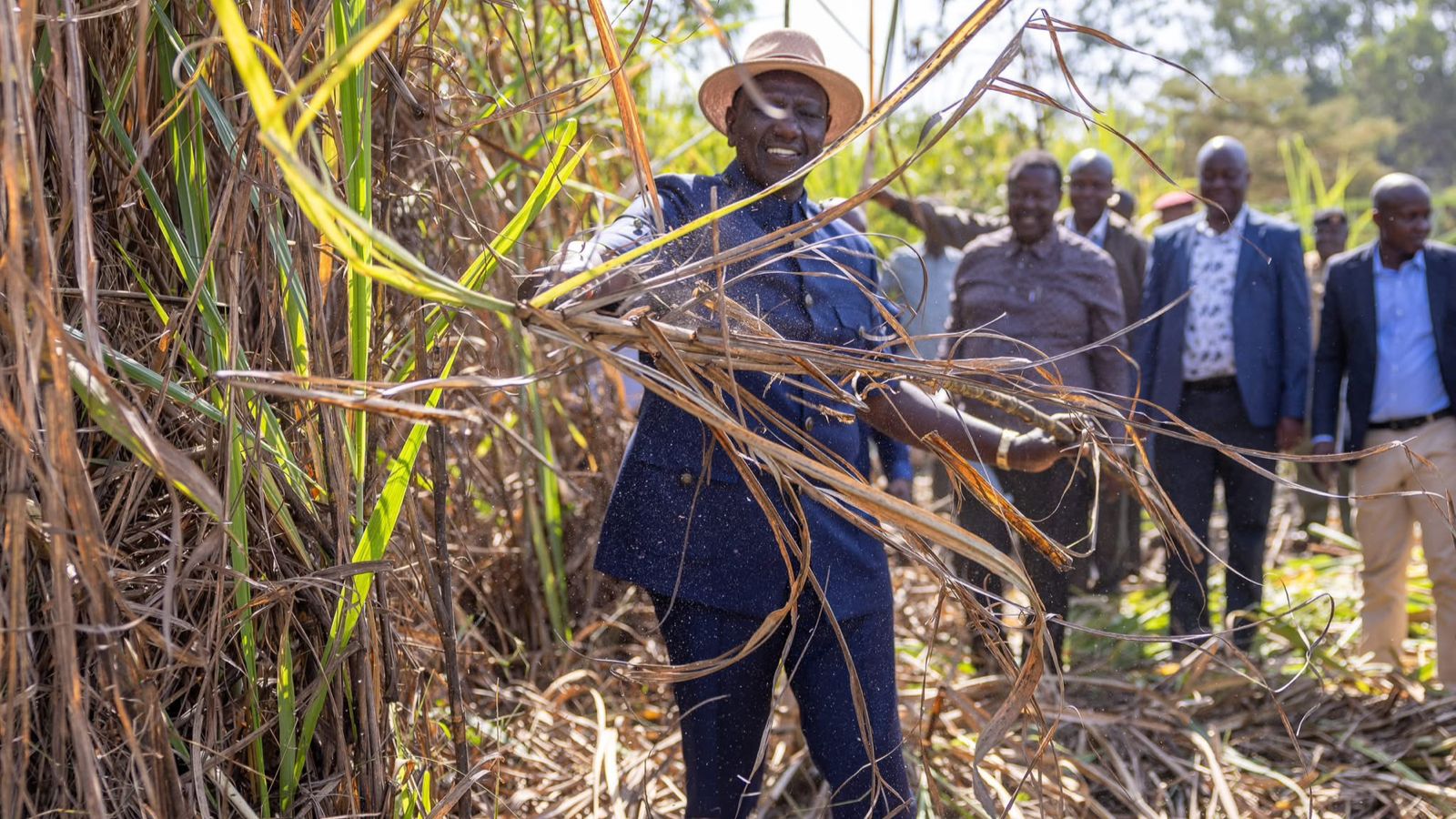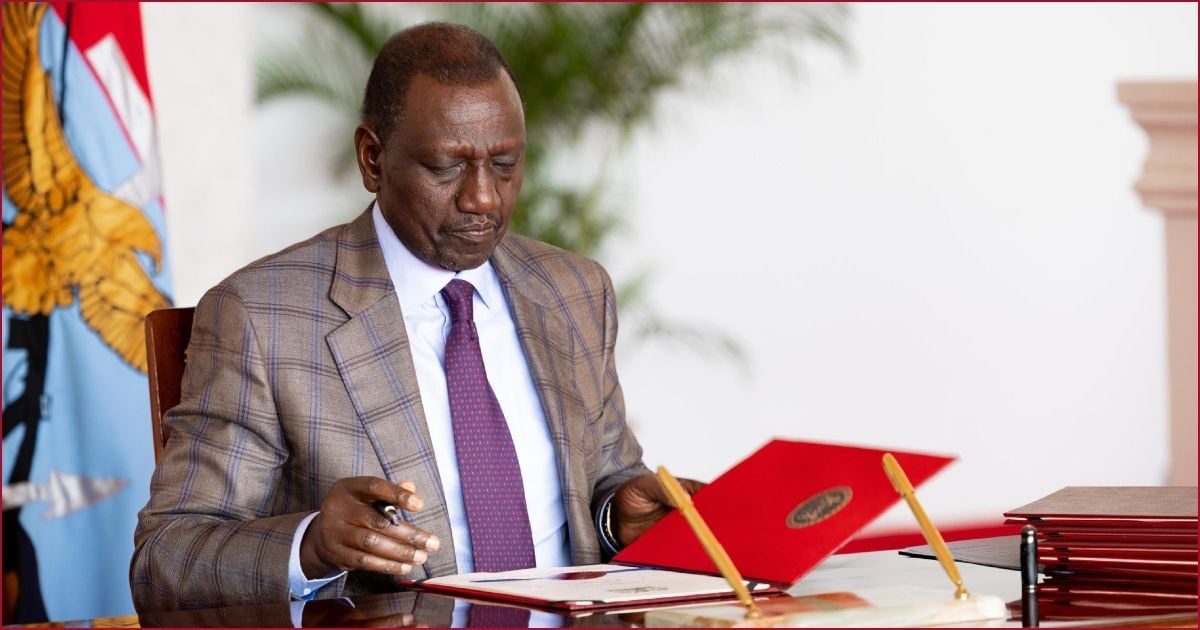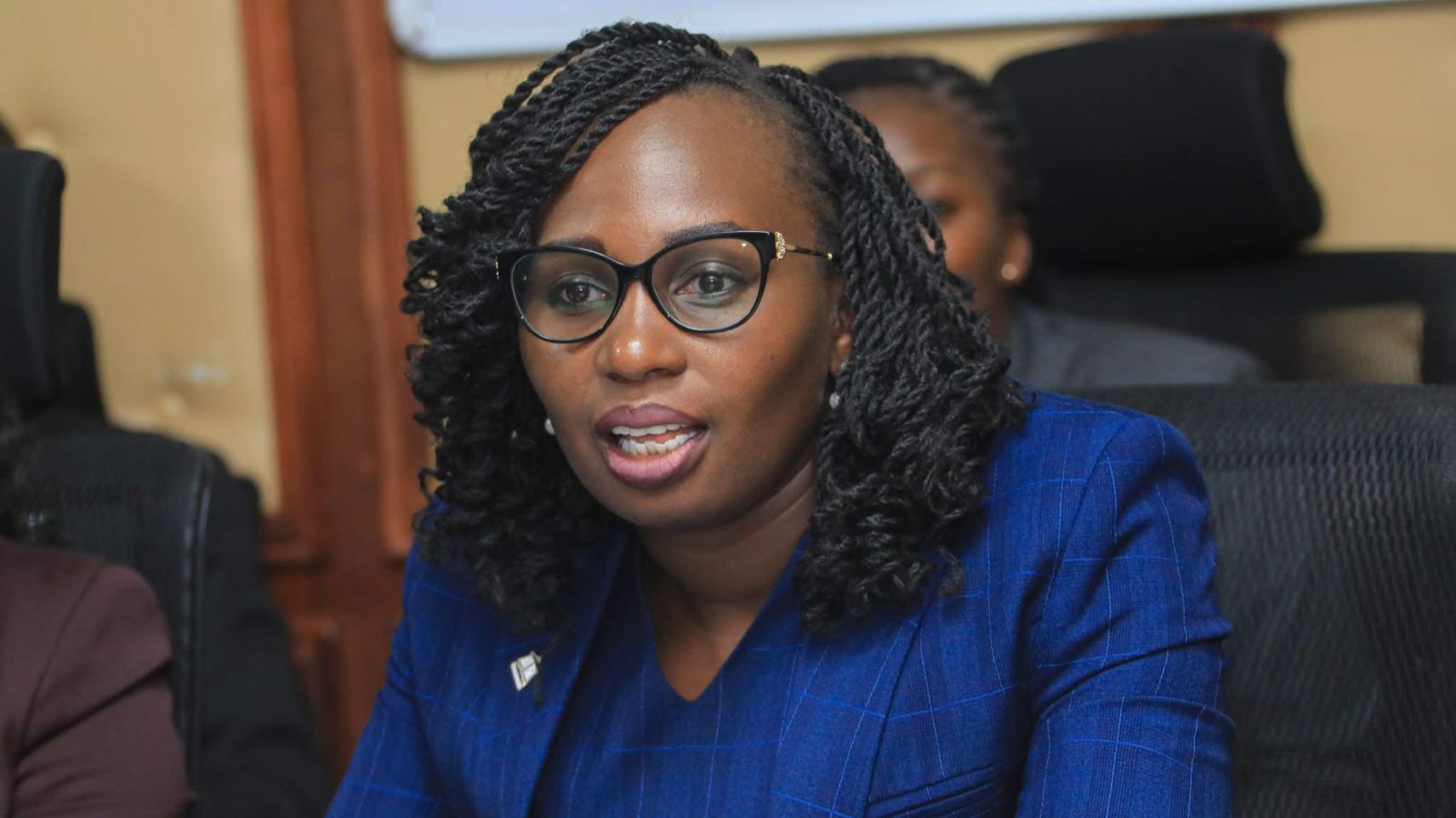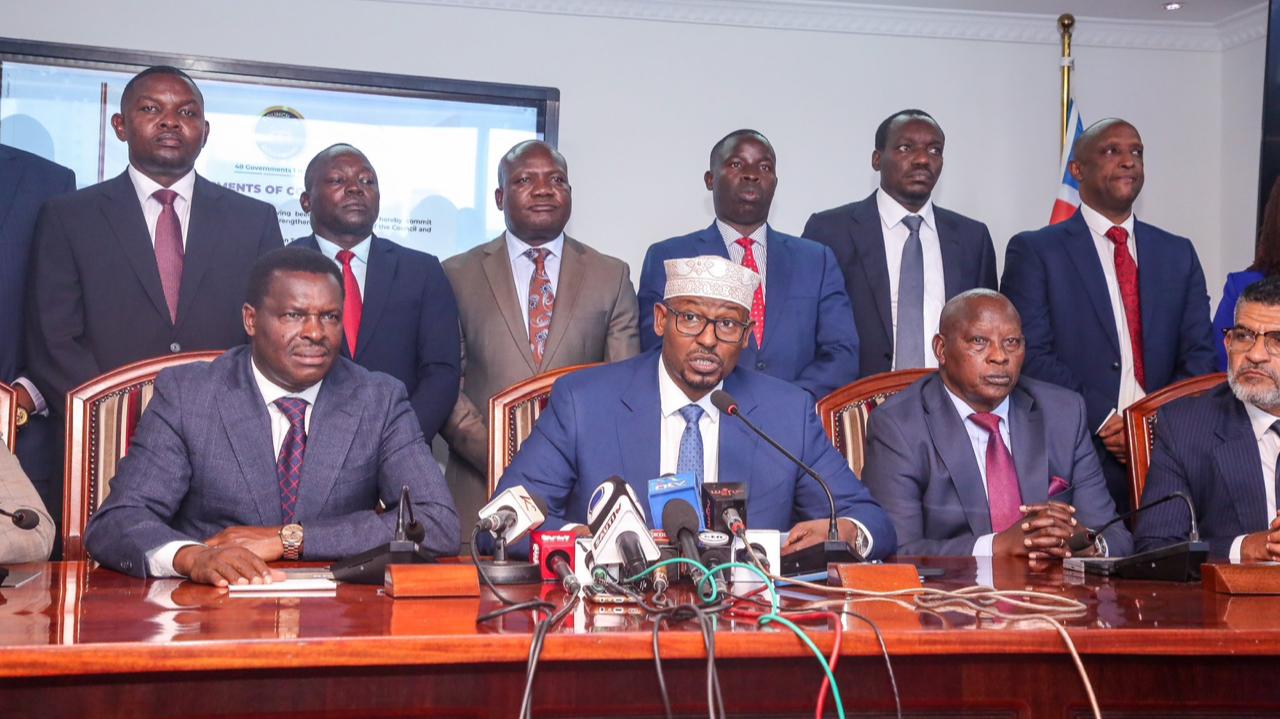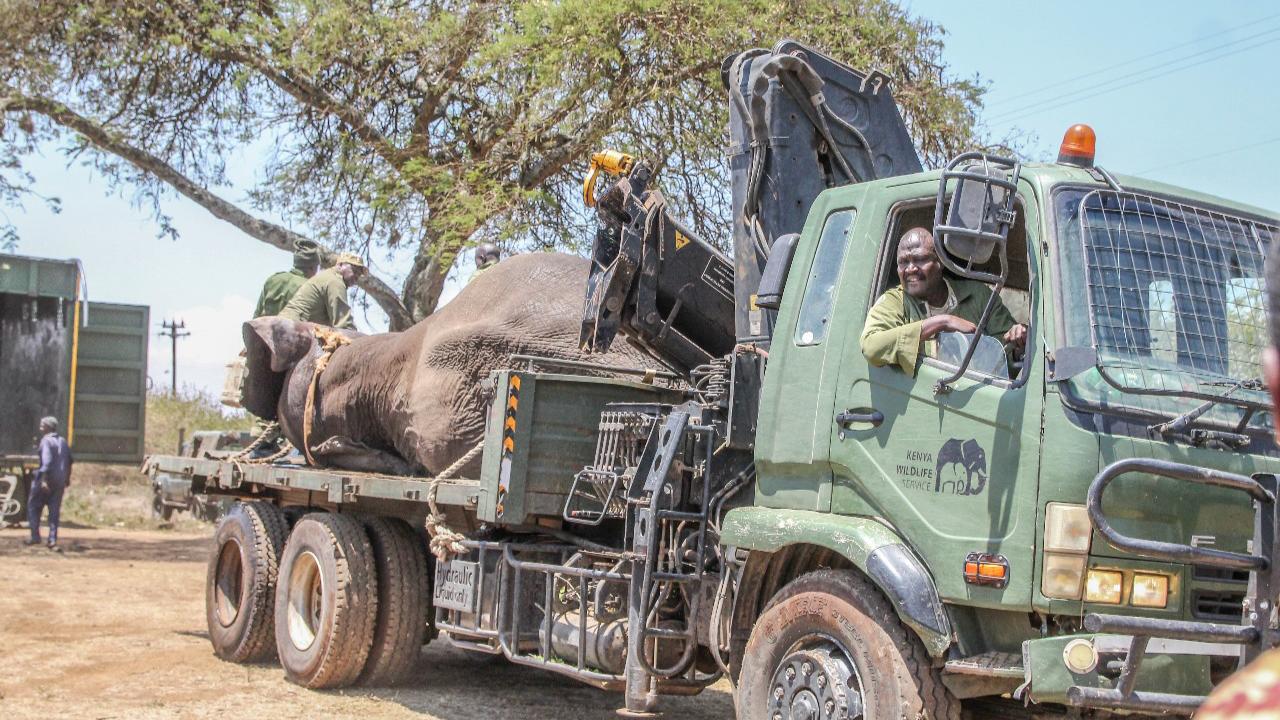President William Ruto on Sunday, October 20, led the Mashujaa Day celebrations in Kwale Stadium, Kwale County.
Here is the full speech by President Ruto.
1. We, the people of Kenya, are proud defenders of our freedom and aspire to become and remain free and sovereign.
2. These were the foremost attributes of the first generations of freedom fighters who faced the monster of imperial domination with unflinching courage and commitment to prevail, even if it cost them everything, including their very lives. From them, we have a fine model that has inspired generations of selfless patriots and continues to inspire us today as we do our part in building this nation. From them, we have learnt that to be free, we must be united as one family that draws its strength from the unique contributions of its diverse members and that we must see each other as equals, treat each other justly and leave no one behind.
3. We, the people of Kenya, know that, just like our ancestors, we have what it takes, including the values, principles, and commitments that define ushujaa, to break free of oppression, humiliation, poverty and indignity. We know this because for our nation to be free, brave men and women, young and old, from every community and every region, struggled with exemplary determination until Kenya was free. We know this because everywhere you go in Kenya, the echoes of heroism, histories of sacrifice, and legacies of historic struggles by ordinary people who achieved the extraordinary endure to date.
Read More
4. Our heroes did not hail from one village or speak one language. Our heroes are numerous and diverse, united by a principled commitment to confront an unjust, exclusive and oppressive system in pursuit of the noble vision of national liberation. This unity of purpose motivated the icon of courage, Mekatilili wa Menza, and her generation of champions from every part of Kenya to resist colonialism, as well as Ronald Ngala and his fellow freedom fighters who advocated independence and decentralised government, which was an early form of devolution.
5. In confronting colonialism, Mekatilili wa Menza did not seek to free her village or region from occupation by a community. Instead, she resisted the structures and institutions of a system of exploitation and tyranny in the knowledge that defeating it would free a whole nation. This is the same spirit embraced by other freedom fighters, such as Otenyo Nyamantere and Moraa Ng’iti from Kisii, Wanameme Masinde in Bungoma, Oigo Paul Angwech and Oyuko Phoebe Ambiyo in Kisumu, Igoki Teresia Kiambi in Meru, Kalondu Matheka Mbalu in Makueni, and many others.
.jpeg)
6. The great lesson that has been passed down to us from their era, and which we must faithfully transmit clearly and boldly to future generations, is that every citizen of Kenya is a full and equal member of our political community, entitled to make a contribution to nation building, and with an inalienable right to a full, just and fair share of all the benefits that accrue from our development. No proposition to discriminate or to unjustly diminish one while enlarging another's rights is admissible. Therefore, any formula seeking to exclude, alienate or disenfranchise any person, group or community for any reason is repugnant to the very essence of our nationhood. We are one people, and Kenya is one united, indivisible, and sovereign nation.
7. Freedom came at great cost and was won against overwhelming odds. It called for a capacity to embrace immense sacrifice and willingness to pay the ultimate price. We remember them and appreciate their sacrifices. We recognise their achievements and acknowledge that the nation we have today, with its past history and future prospects, is a legacy of their life and work.
8. Every day, the Constitution commands us to honour our freedom fighters, who struggled heroically to bring freedom and justice to our land by living up to the spirit of ushujaa in the way we relate with one another, pursue our vocations and build our nation. Article 10 of the Constitution shows us how to be mashujaa in our own way, day by day.
9. The freedom fighters were inspired by enduring, universal principles and values which have transcended generations and live with us today. Unity, sharing, integrity, courage, determination and patriotism are our sources of strength in the face of difficulty, risk and danger. The struggle for freedom is the everlasting mission of humanity because in freedom lies the opportunity to achieve peace and democracy, health and wealth, justice and dignity, equality and inclusion, as well as unity in pursuit of prosperity. Freedom is the key that opens the door to sustainable progress in every sector.
10. That is why today, we are a modern, competitive economy and a devolved democratic society. Our freedom has allowed us the space to grow and perfect our nationhood, sustaining the spirit of freedom to evolve from the monopoly of our liberation movement into a dynamic, pluralistic society where competition makes us stronger.
11. Since the ultimate goal of freedom is sustainable development, the heroic struggle of our time must focus on achieving this through inclusive growth. The ushujaa of our era calls for urgent mobilisation to create wealth and jobs, reduce poverty and inequality, and protect the environment. The dedication we bring to these tasks will determine how well we uphold the legacy of Mekatilili wa Menza and other freedom fighters.
12. This fact is abundantly clear to us: The persistent unemployment, severe poverty, increasing inequality and general gross underdevelopment are not only undesirable but are also unacceptable derogations from the legacy of our mashujaa and the spirit of our inter-generational commitment to freedom.
13. Recognising this, the government formulated a plan aimed at enhancing dignity and security, creating wealth and expanding opportunities by increasing investments in infrastructure development, essential service delivery and the productivity of key strategic sectors.
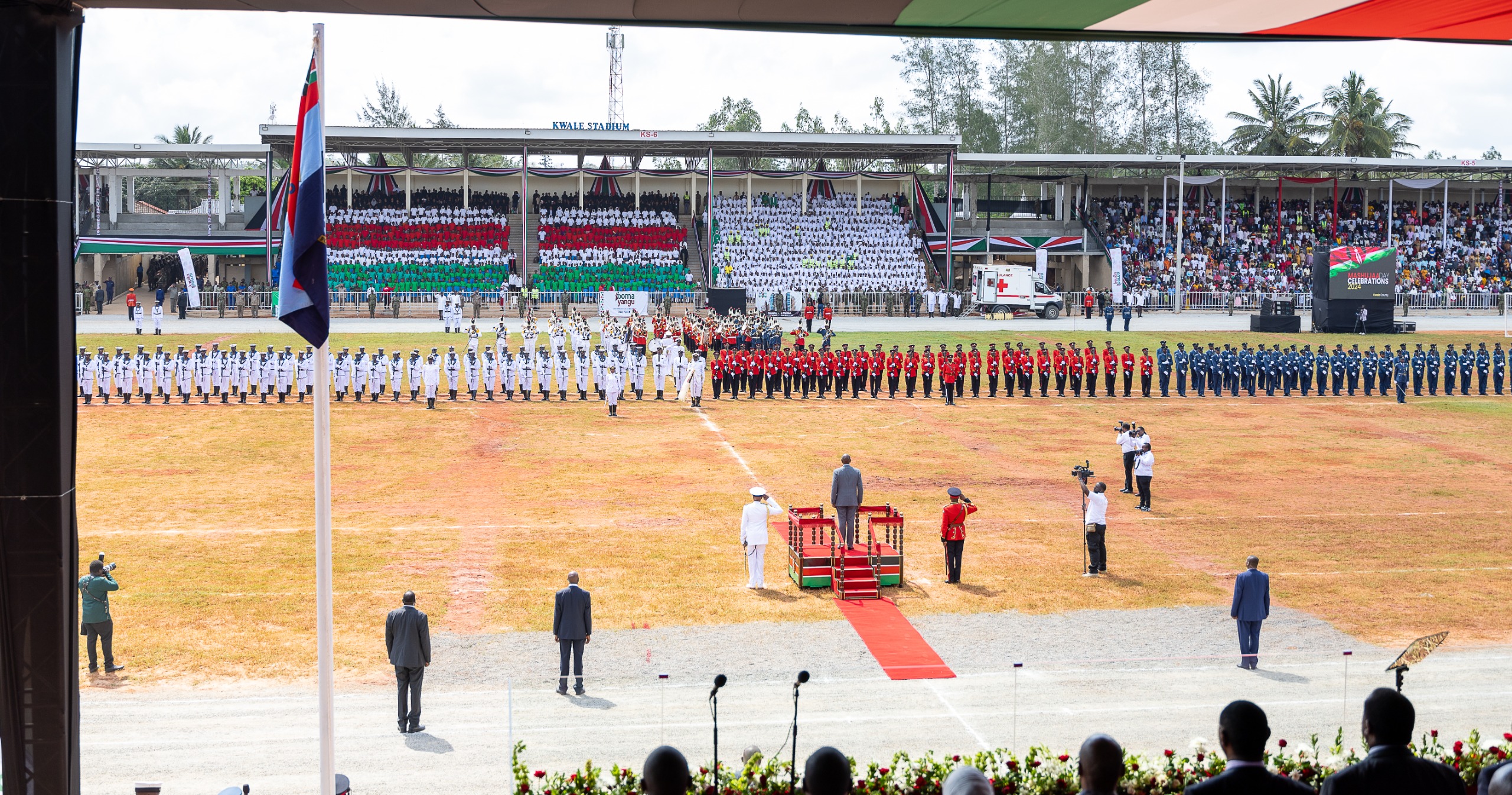
14. The Bottom-Up Economic Transformation Agenda is Kenya’s economic freedom charter, which mobilises unprecedented levels of investment into the most impactful sectors in providing essential public services inclusively and affordably, multiplying incomes and creating millions of new, good jobs for our many well-educated and highly skilled young people.
15. The priority sectors identified as the strategic pillars of the Bottom-Up Economic Transformation Agenda have enabled us to galvanise the national development agenda by mobilising local and foreign investments, significantly improving the reach, efficiency and impact of services and creating jobs at a sustained incremental rate.
16. We are driving agricultural transformation through major interventions across all value chains, including fisheries and aquaculture, horticulture, food crops, livestock, beekeeping, and rangeland development. Investments are being made to boost production and supply of quality inputs, provide extension services, reduce post-harvest losses, and maximise returns for producers. These efforts aim to increase economies of scale through aggregation, agro-processing, value addition, and exports.
17. In the digital economy, we have invested in developing digital and ICT hubs in all wards and expanding last-mile fibre-optic connectivity across the country, reaching areas previously considered remote and underserved. These efforts have enabled young digital creators, entrepreneurs, and workers to access opportunities both locally and globally.
18. We have also supported mama mboga, kinyozi, bodaboda operators, small-scale traders, construction workers, and others working in the informal or ‘hustler economy’ by investing in financial inclusion through accessible loans, capacity building and regulatory reforms to facilitate their growth. I want to commend the banking industry for extending an additional Ksh 150 billion in loan facilities to MSMEs to complement our efforts.
19. To achieve universal health coverage, we have transformed the provision of healthcare to enable all Kenyans to access promotive and preventive services in addition to curative services, first under an all-inclusive social health framework and also through programmes like Afya Bora Mashinani, which has on-boarded over 100,000 community health promoters, who provide care directly to people in their homes.
Ladies and Gentlemen,
20. Today marks the conclusion of Boma Yangu Week, launched last Monday, to celebrate the achievements of our Affordable Housing Programme. Throughout the week, we showcased significant progress in advancing this ambitious agenda, which aims to transform lives and livelihoods by providing affordable, decent homes for millions of Kenyans. On this Mashujaa Day, we recognise key initiatives such as the Kenya Urban Resilience Project, the Kenya Informal Settlements Improvement Project, and the National Climate Resilience Programme, known as ClimateWorX.
21. Under the Bottom-Up Economic Transformation Agenda, we are committed to striking a major blow for the freedom struggle of our time by eradicating the shame of hunger in a land of plenty, taking decisive measures to significantly reduce poverty, providing all Kenyans with high-quality healthcare, and enhancing the dignity, well-being, and standard of living for everyone.
22. The Affordable Housing Programme is central to these efforts, with a target of delivering 200,000 homes annually to meet the growing demand for housing. This initiative aims to tackle the deficit that has left many Kenyans living in insecure, unsanitary, and poorly constructed dwellings while also fostering the growth of sustainable communities and generating job opportunities across various sectors.
23. The progress so far is remarkable: 124,000 housing units are at different stages of completion across 75 sites in 37 counties. These projects include homes for military, police, and correctional services personnel, student accommodation, and private-sector developments. Here in Kwale County, for example, the Matuga Affordable Housing Project is underway creating daily employment for 200 workers. Similarly, the Diani White House Project is under construction, is generating additional jobs.
24. Boma Yangu, a key platform in the programme, exemplifies our commitment to economic empowerment and improving Kenyans’ quality of life. This online portal aggregates housing demand, with over 547,000 registered users, of whom 52,000 have collectively saved more than KSh2.3 billion towards homeownership. These numbers represent real individuals striving to achieve their homeownership dreams.
25. Take, for example, Joseph Kairu from Ruiru, who began saving on Boma Yangu and has now accumulated an impressive KSh895,000 - more than half the cost of a one-bedroom unit. Similarly, Jemimah Nyaboke, a businesswoman living with a disability in Nairobi, has saved KSh650,000, steadily and surely bringing herself closer to homeownership. Jane Mumbi Muchina, a widow and mother of two from Nakuru, will soon move from her rented unit, which costs KSh1,500 monthly, to her own one- bedroom home after patiently and with determination saving for it. Likewise, David Gakiri, a 44-year-old Jua Kali artisan and father of four, is nearing the completion of his savings to move into his own house. These stories illustrate how the Affordable Housing Programme is empowering ordinary citizens, affirming their dignity, and opening pathways to financial independence.
26. In December this year, we will achieve a major milestone by handing over 1,080 new studio units at the Mukuru Meteorological Site in Nairobi, with mortgages priced at Ksh 3200 per month. The revolutionary dimension of this milestone is that, finally, mortgages will no longer be the vocabulary of a lucky few but an accessible, feasible and convenient instrument of bottom-up empowerment, making home ownership affordable and, therefore, attainable.
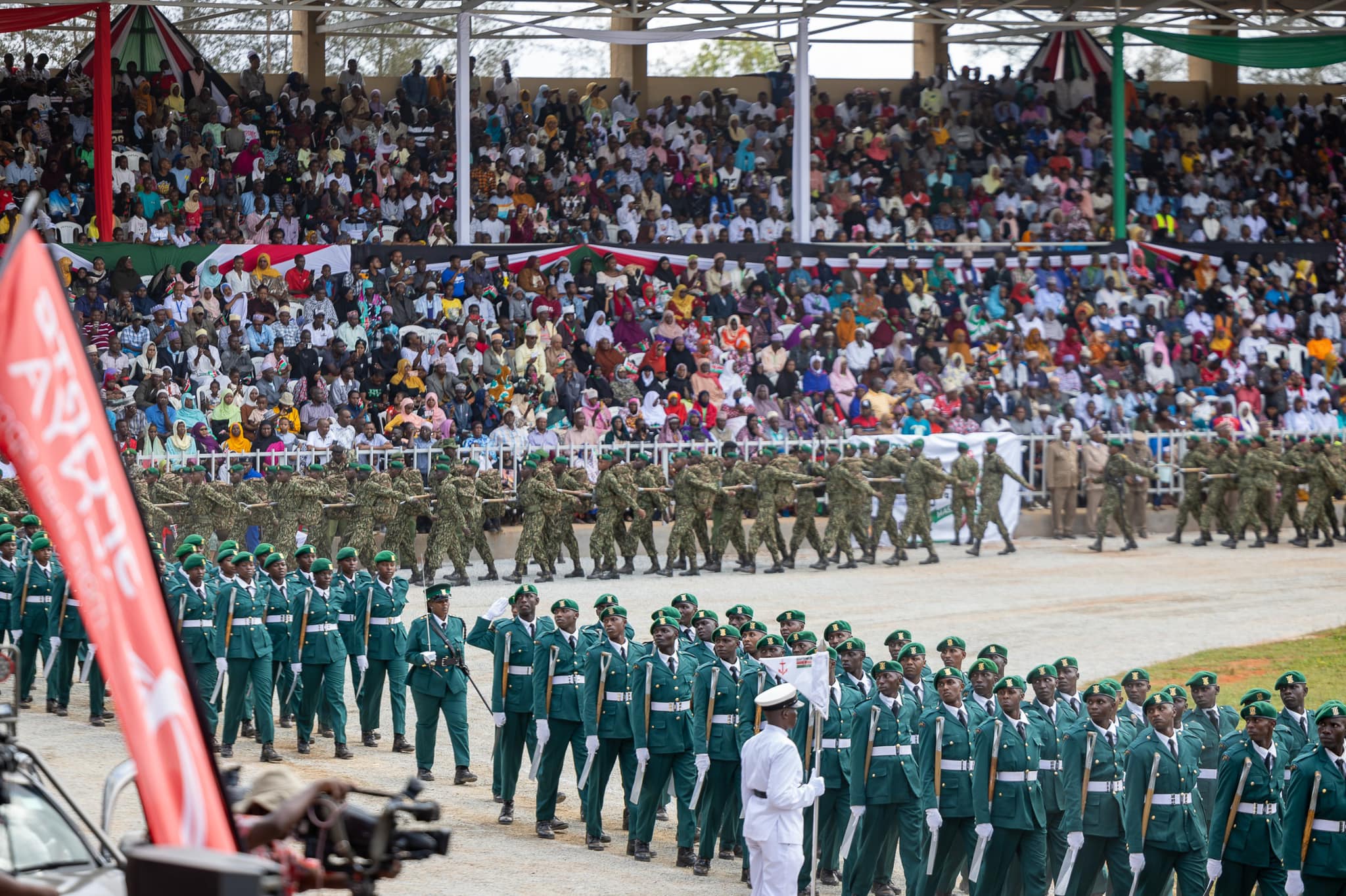
27. The programme’s benefits extend beyond housing. So far, the Affordable Housing Programme has created over 160,000 jobs throughout the housing value chain. While the industry remains predominantly male, we are working to increase female participation to 30%, up from the current 20%.
28. Our collaboration with the Jua Kali sector has demonstrated the Affordable Housing Program’s significant potential to transform local manufacturing. In Kwale County, over 200 artisans are providing essential services at various sites, fabricating components such as doors, windows, and cabinet fittings. The success of involving worker cooperatives and artisans has strengthened our commitment to supporting local businesses. To facilitate this, the government has allocated KSh4.4 billion specifically for payments to MSMEs supplying goods and services under the program. I was especially proud to witness the signing of the KSh720 million subcontract awarded to the Soweto Highrise Fabricators and Woodworkers Association in Kibera, Nairobi. This partnership will greatly enhance the business prospects of this Jua Kali association, now recognised as a bona fide AHP supplier.
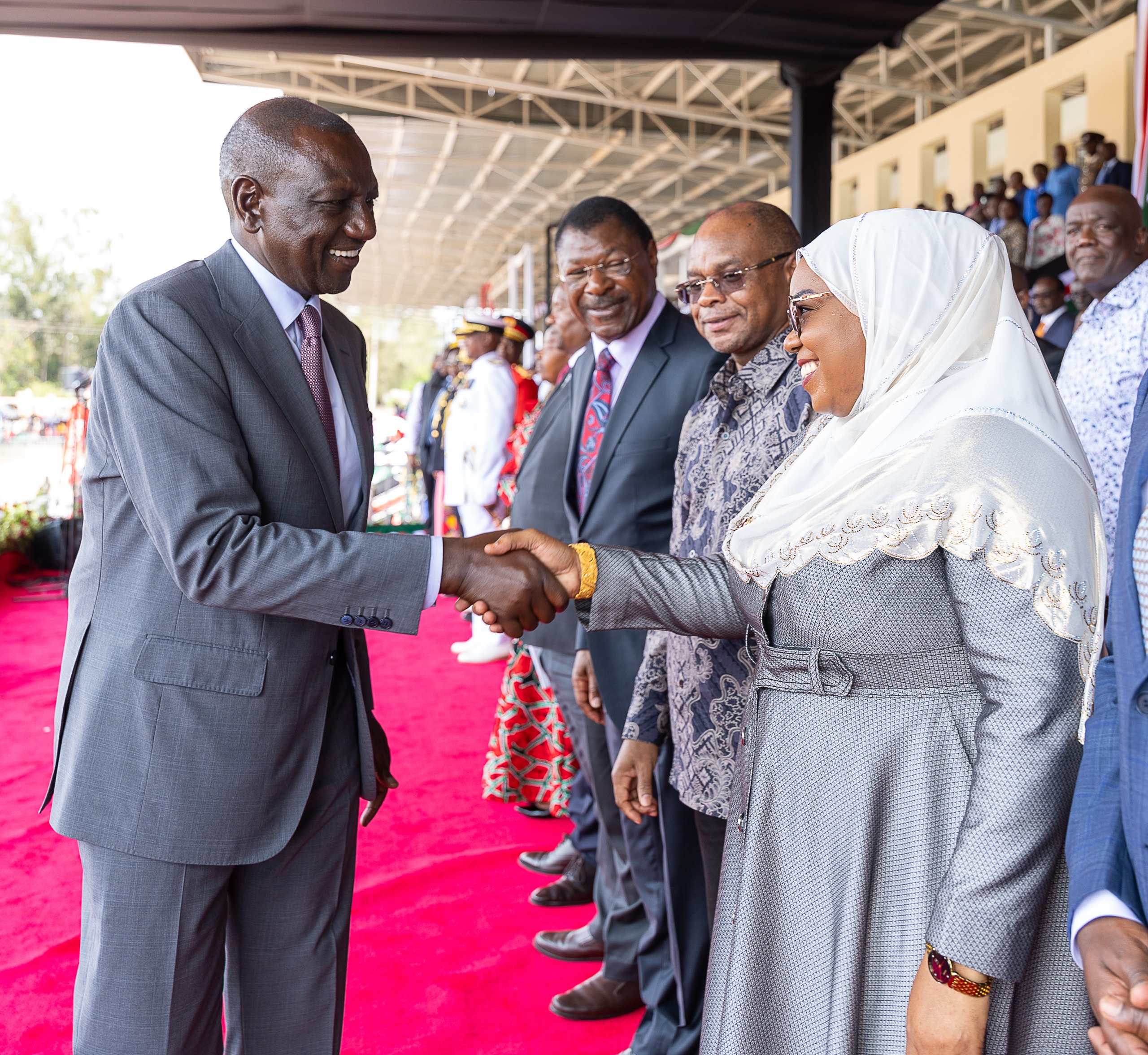
Ladies and Gentlemen,
29. On this day, it is important for us to remember that the objective of the freedom struggle was for the citizens of Kenya to have the full rights and opportunities to live in dignity and achieve a high standard of living with security, health and wealth. As we implement the Affordable Housing Programme, therefore, we must, at the same time, move quickly to complement it with initiatives that promote health and wellbeing and secure work and livelihoods.
30. Thus, healthcare remains a priority under the Bottom-Up Economic Transformation Agenda. We are advancing the scope of the Universal Health Coverage to give every Kenyan access to promotive, preventive, curative and emergency services. Through the Social Health Authority (SHA), citizens will contribute and access comprehensive healthcare benefits. The value for money in this scheme will be undeniable once the migration from the National Health Insurance Fund is completed and the fund is fully operational. As of the beginning of this month, 12.9 million Kenyans were registered with the Social Health Authority (SHA), and all public health institutions, along with 50% of private facilities, were already enrolled to provide services. We urge private hospitals to expedite the contracting process to enable us to complete the final phase of the Universal Health Coverage rollout. To accelerate this rollout, the Government of Kenya has released Ksh 3 billion to settle outstanding payments to service providers.
31. The time for doubt and anxiety is slowly but surely getting behind us, and the space for criticism, scepticism and pessimism is over. Real change ushers us into unfamiliar places; transformative change overturns old assumptions and unlocks unprecedented possibilities. Every step into the future takes a measure of courage, and the comfort of the familiar can become a temptation to hesitate or backslide.
32. We have been here before, times without number. Many Kenyans were anxious about the prospects of the freedom struggle and doubted the capacity of our freedom fighters to defeat the formidable power of the Empire. Some were afraid of what they saw as an uncertain future in an independent nation in contrast with the very real, if undesirable, present in an oppressive colony. Later, when challenging the single-party monopoly, many worried that embracing democratic pluralism might destabilise the country and lead to state collapse. More recently, some hesitated as we took a leap of faith into a new dispensation, fearing that devolution could fragment the nation and that strong checks and balances might render the Republic ungovernable.
33. Despite these concerns, here we are, stronger than ever, facing the future with greater confidence and building a strong nation that is respected for its positive contributions regionally and globally. Independence, multi-party democracy and our progressive Constitution have made Kenya stronger, enabling our country to move forward and upwards, even in the midst of unprecedented challenges.
34. What we have learnt from Kenya's history of freedom struggle is this: We must not allow the fear of change to imprison us in the past, and we must have greater faith in our collective capacity to achieve inclusive transformation and usher in progress that leaves no one behind. I call on all Kenyans to have faith and a little patience.
In a matter of weeks, SHA will be serving us efficiently and making the dream of Universal Health Coverage come true.
35. I am aware that during this transition period, employees of the former NHIF will be managed in accordance with the provisions of the Social Health Insurance Act of 2023. I want to assure them that no one will lose their jobs, and I appreciate their dedication and service during this transition.
36. We have implemented strong institutional and strategic measures to extend the impact of Universal Health Coverage by developing the biomedical, pharmaceutical, and medical supplies production industries. To enhance healthcare delivery and ensure the security of medical supplies, the government is improving the overall supply chain, starting with capacity upgrades and the establishment of Kenya Medical Supplies Agency (KEMSA) regional distribution centres in Kisumu, Embakasi, and Mombasa.
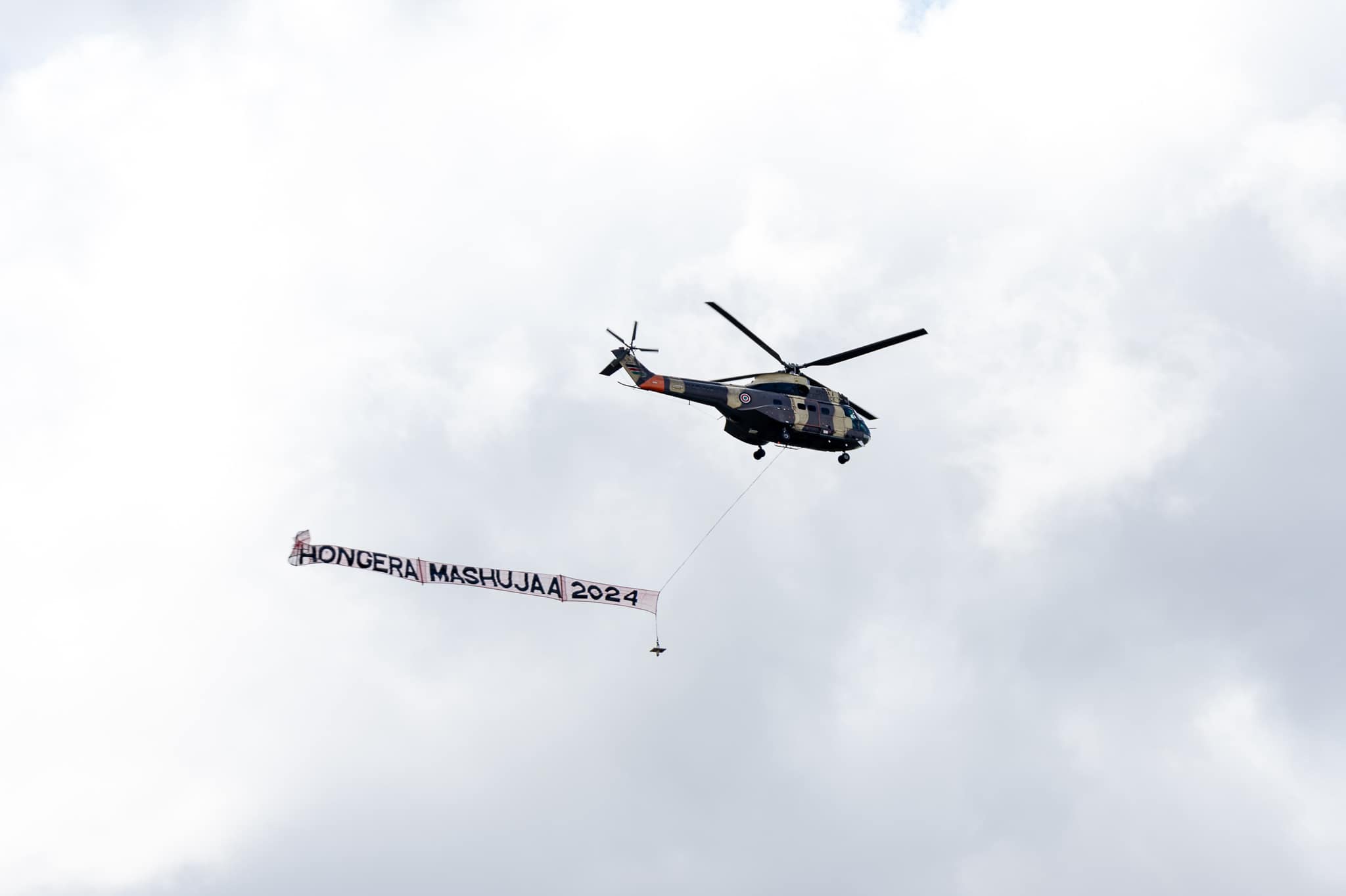
Ladies and Gentlemen,
37. The Kiswahili saying, “Mgagaa na upwa hali wali mkavu”, is an understated hint of the promise held out by our Blue Economy. Because of the Indian Ocean, Kwale County and the Coast region as a whole abound with transformative opportunities of an immense magnitude. At present, the Blue Economy contributes KSh20 billion to the economy annually and is expected to increase to over KSh80 billion in 5 years. This transformation will create thousands of jobs and stimulate regional economy through increased investment in various industries, enhanced export manufacturing and expanded overall economic activity.
38. To begin with, we are investing KSh 2.7 billion in the construction of fish landing sites and markets equipped with cold chain storage facilities across the country, with KSh 1.2 billion allocated specifically to the Coast region. Additionally, we are releasing KSh 1.7 billion in grants to support 612 fishing cooperatives and groups in the region. The Shimoni Port, Kenya’s first dedicated fish port, is now 82% complete. Once finished, it will boost the fishing industry by increasing the handling capacity by 50,000 metric tons of fish annually, thereby promoting value addition for both domestic and export markets.
39. To promote and enhance aquaculture and mariculture in the country, the government is investing KSh 2.4 billion, including KSh 1.4 billion allocated specifically for the Coast region, in the development of the National Mariculture Resource and Training Centre (NAMARET) in Shimoni, Kwale County. This centre will serve as a catalyst for the growth of productive and profitable mariculture. It will function as a marine fish seed breeding and multiplication centre, facilitate research and innovation in mariculture, and offer training for fish farmers and students.
40. To increase fish production and facilitate the transition of fisherfolk to deep-water and Exclusive Economic Zone (EEZ) fishing, the government has procured and distributed 123 fishing boats to local communities. Additionally, we plan to acquire deep-sea fishing vessels for offshore fishing, with a total budget of KSh 600 million allocated for this purpose.
Ladies and Gentlemen,
41. The Affordable Housing Programme, healthcare reforms and Blue Economy investments go beyond infrastructure - they embody our commitment to dignity, opportunity and prosperity for all Kenyans. We invite the private sector to join us and drive up the scale of these initiatives to provide opportunities for more
Kenyans to take part in achieving lasting transformation. Together, we are building a brighter future where every Kenyan has the opportunity to thrive and win the freedom struggle of our time.
.jpeg)
42. Let us remember the examples of our first mashujaa and be inspired by their values, achievements and legacy. Let us do our part to promote national cohesion and inclusion and to combat division, tribalism and exclusion. Let us remember that without unity, our freedom and our future would be under threat. Together, we are unstoppable in pursuit of our aspirations and immovable in the face of any challenge.
43. By embodying, championing and defending our national values and principles of governance every day, we will be able to live up to the monumental legacy of Mekatilili wa Menza and other heroic men and women who blazed the trail for the patriots who followed and built a nation that present and future generations will be proud of.
44. I am encouraged by the bravery, diligence and loyalty with which Kenyans of all walks of life undertake their professional and social tasks, fighting crime and terrorism, defending the nation's territorial integrity, treating the sick, feeding the nation, teaching our children and serving the needs of underprivileged citizens. To you all, I convey the gratitude and appreciation of all Kenyans. It is in these things that heroism lies. The fact that we must do them every day doesn’t make them any less heroic or extraordinary - ushujaa is doing ordinary things in extraordinary ways. Therefore, whatever our vocation, let us apply ourselves with zeal because that is how great nations are built.
-1729419001.jpeg)
